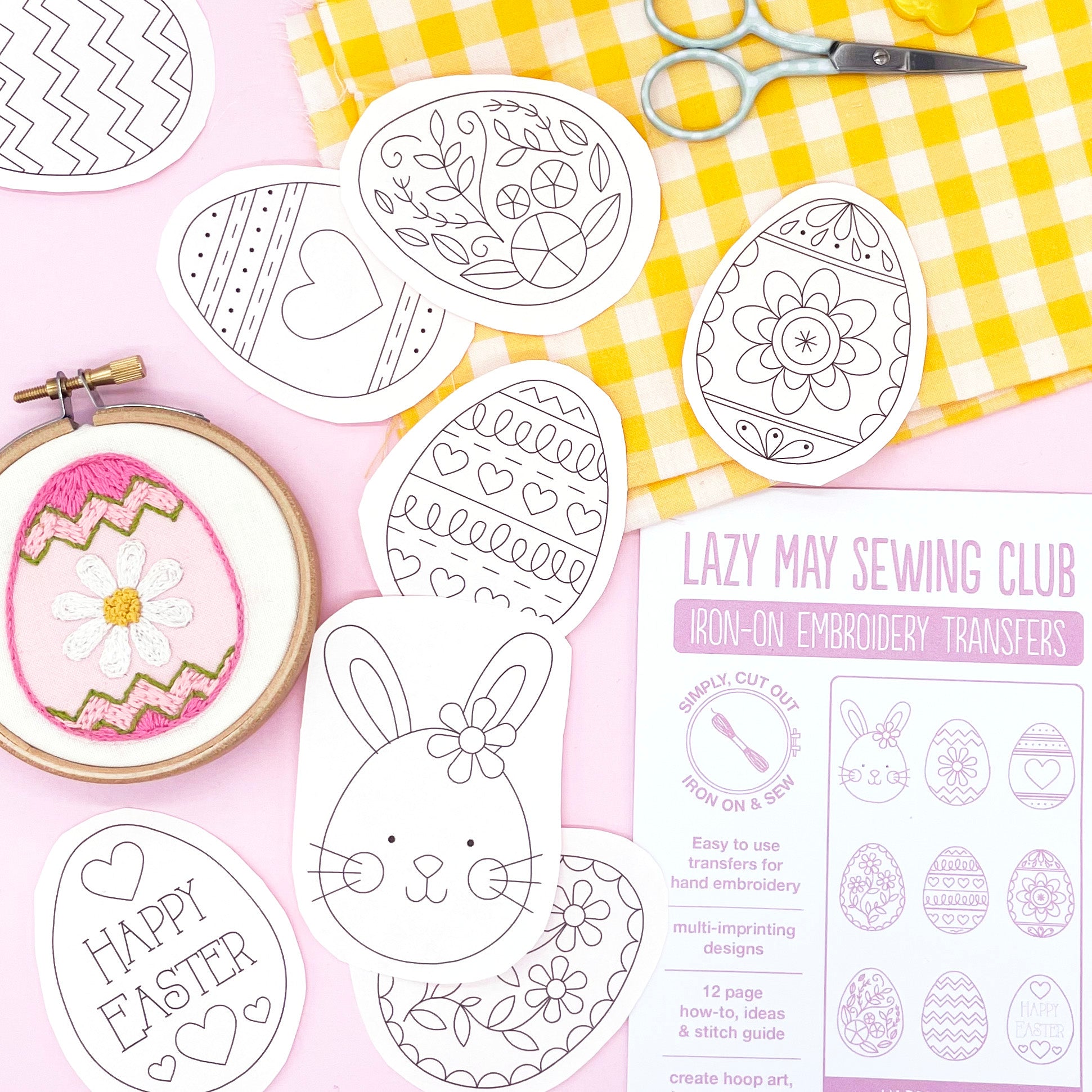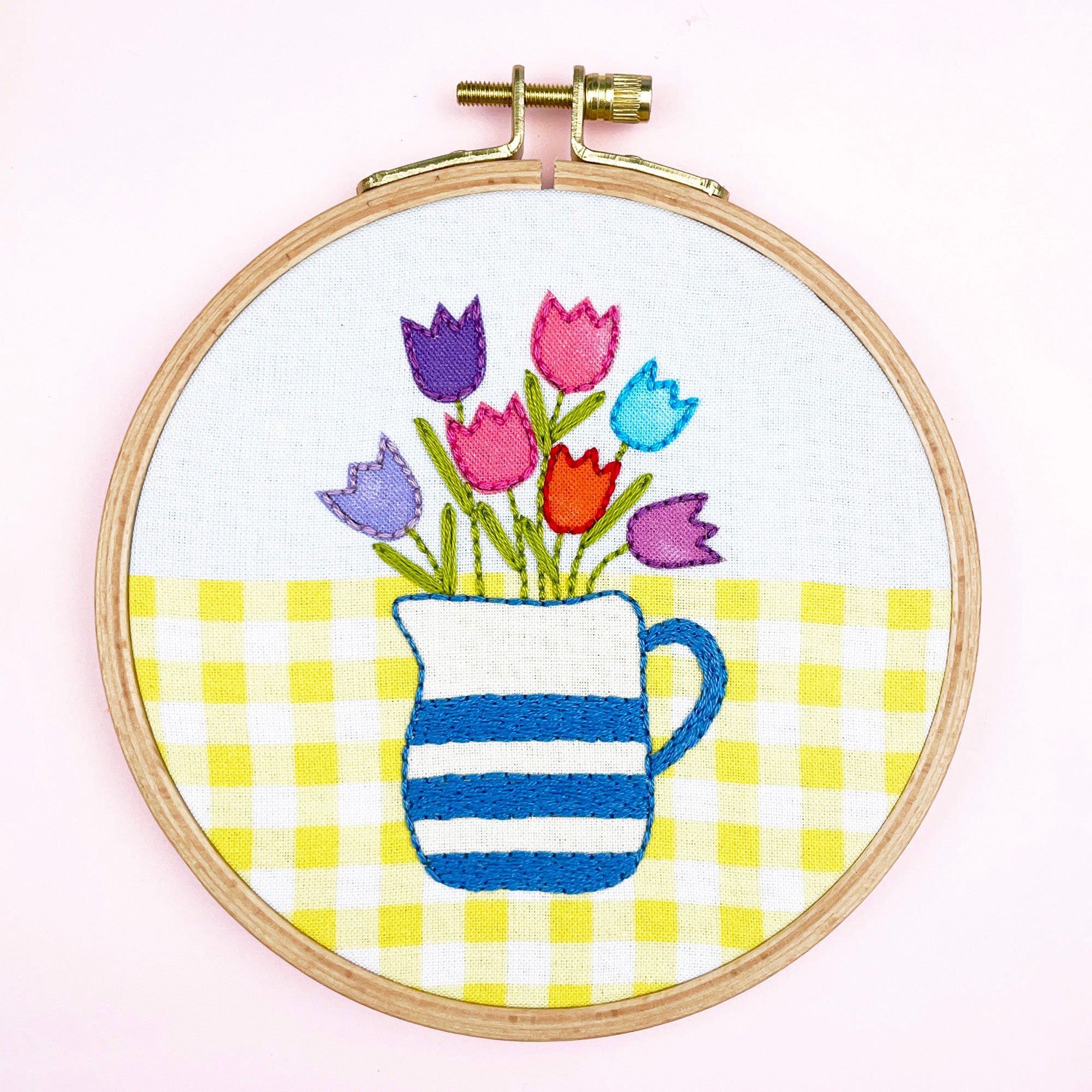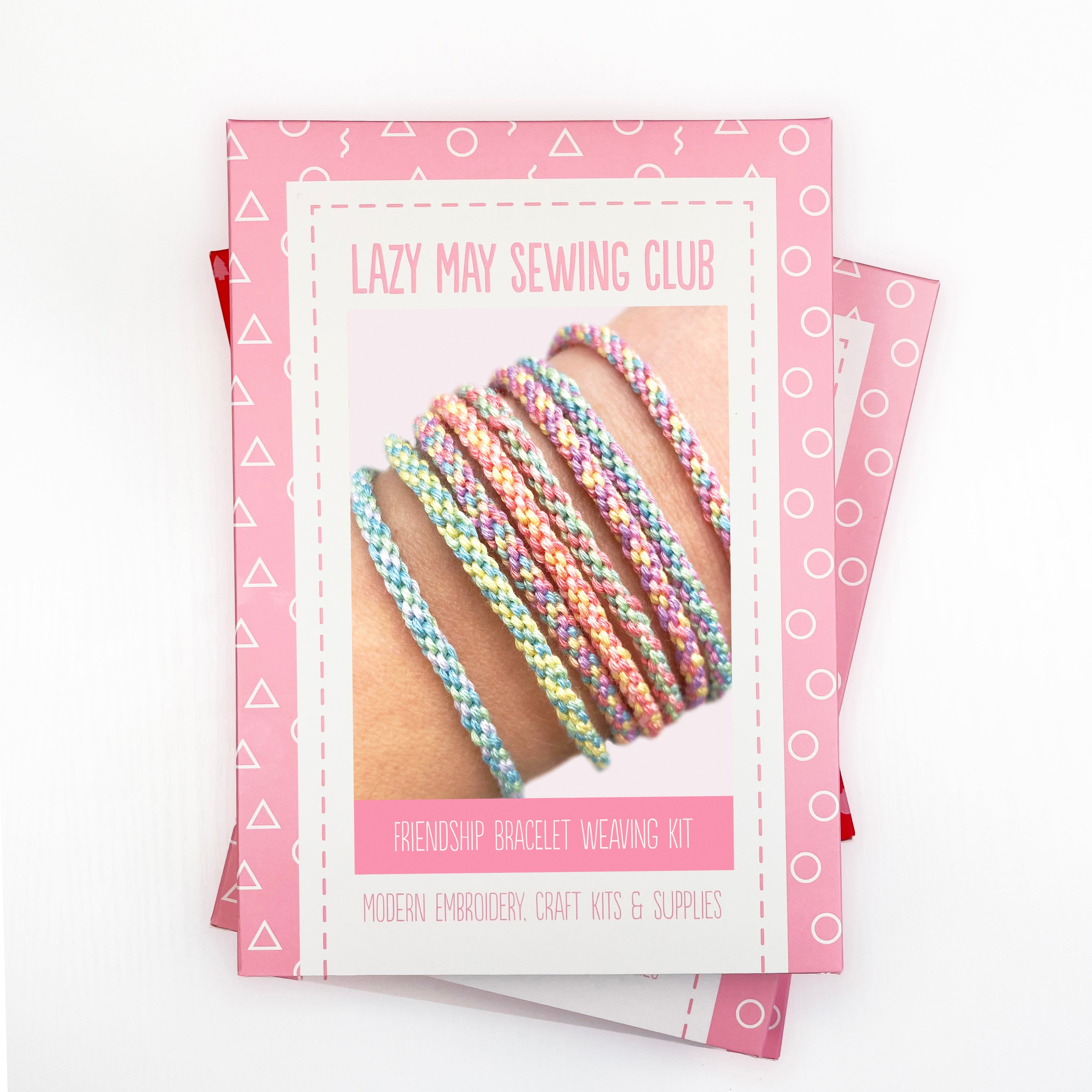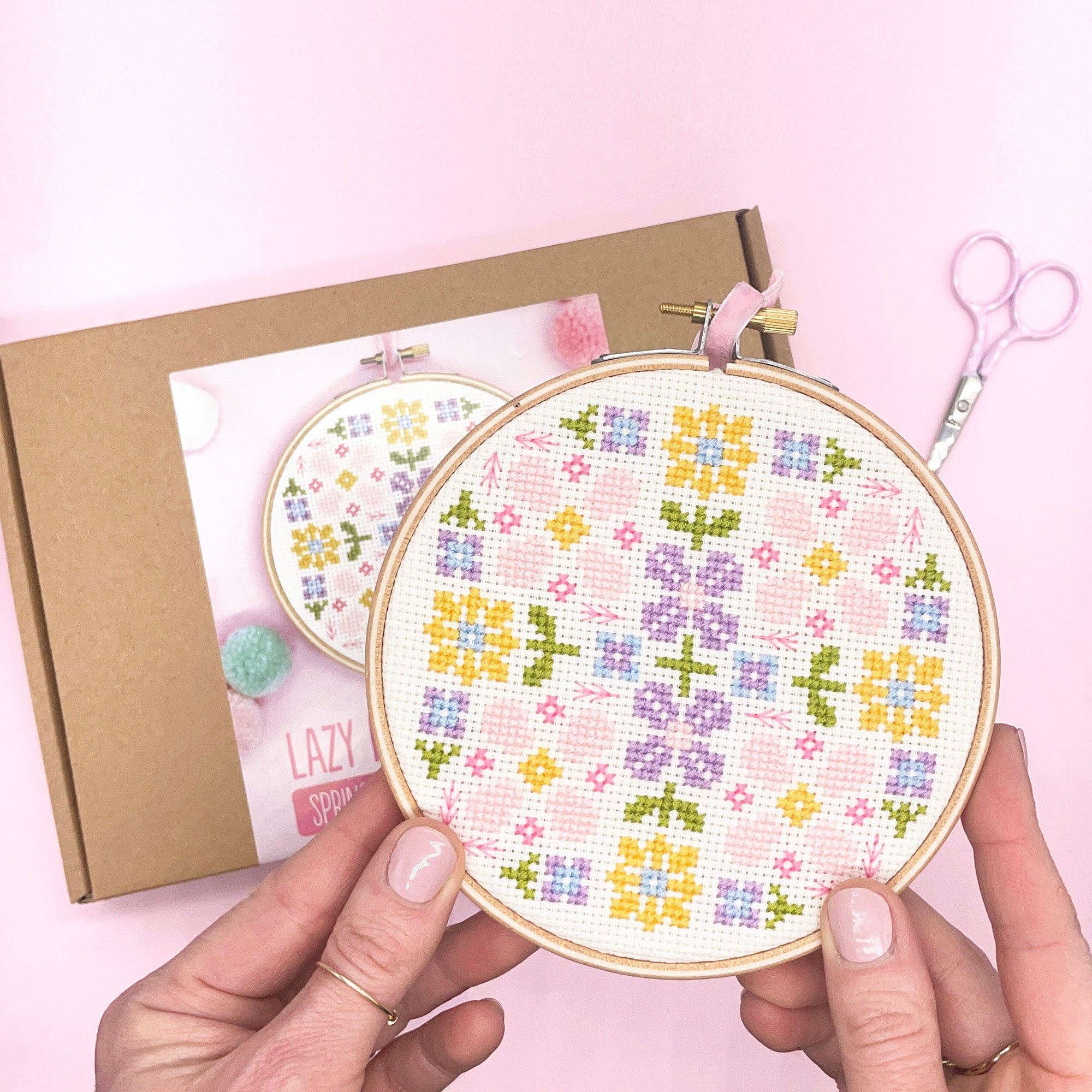Embroidery equipment for beginners: what you need to get started
If you're just starting out with hand embroidery, one of the first questions you’ll have is: what equipment do I actually need?
The good news is that embroidery for beginners is wonderfully simple. You don’t need a long list of specialist tools or expensive supplies. With just a few basic pieces of embroidery equipment, you can start stitching straight away.
In this guide, I’ll walk you through the essential embroidery supplies for beginners – from choosing the right needles and thread to picking a hoop, fabric and scissors – plus a few practical tips to make your first projects feel easy.
Ready to start stitching?
If you’d rather not piece everything together yourself, my beginner embroidery kits include all the essential equipment and clear step-by-step instructions.
What equipment do I need to begin embroidery?
The good news is you hardly need any embroidery equipment to get started. The essentials are easy to find, relatively inexpensive, and you can build up your tools over time.
Embroidery needles

You can find needles online, in craft shops, or even in some supermarkets. Look for packs labelled embroidery needles or crewel needles. They have a larger eye than standard sewing needles, which makes them easier to thread when you’re stitching with multiple strands.
Mixed packs (like size 5–10) are a great place to start. You can try a few sizes and quickly figure out what feels comfortable in your hand.
What size needle should I use?
I like to stitch with a size 7 embroidery needle. It’s thin and sharp, but still has a fairly large eye and isn’t too tricky to thread.
This table shows how many strands of embroidery thread can easily be threaded through each needle:
| Needle size | Max. strands of thread |
|---|---|
| 3 | 6 |
| 4 | 5 |
| 5 | 4 |
| 6/7 | 3 |
| 8/9 | 2 or 1 |
In this table, size 3 is the biggest needle and size 9 is the smallest. The smaller the needle, the smaller the hole it makes in the fabric, which can help you stitch more accurately.
Below are a few types of embroidery needle you might see. You can also find a selection of needles in the supplies section of my shop.




Embroidery thread
There are lots of embroidery thread brands to choose from. Three of the most common in the UK are DMC, Anchor and Madeira. All three make high-quality threads in hundreds of colours.
The standard thread most people start with is called six-stranded cotton (often just “stranded cotton”). It’s ideal for embroidery for beginners because it’s soft, easy to handle, and you can separate the strands to change the thickness of your stitches.
Most embroidery patterns tell you how many strands to use for each part of the design (for example, 2 strands for fine details, or 4–6 strands for bolder lines).
I use Madeira threads in my kits and thread palettes. They’re beautifully soft and don’t tangle easily.


You can also find specialist threads like metallics, glittery strands, variegated (multi-coloured) thread, and even glow-in-the-dark thread. They’re fun once you’ve got the basics down, but stranded cotton is the best place to start when you’re learning embroidery.
Want a simple first project?
If you’d rather skip the guessing and start stitching, my kits include everything you need and clear step-by-step instructions.
Embroidery hoops
Embroidery hoops are inexpensive and make stitching much easier. The most common types are wood, metal and plastic. For most projects, a wooden hoop around 15cm (5in) to 20cm (7in) is a good choice.
Getting your fabric tight in the hoop is one of the most important steps when you learn hand embroidery. I have a full guide to setting up your hoop here.
If you can stretch the fabric so it feels tight like a drum skin, stitching will feel smoother and you’ll be less likely to get wrinkles or puckers in the finished piece.

A couple of final tips on hoops:
- If you’re left-handed, place the end of the screw on the left. If you’re right-handed, place it on the right.
- You can tighten the screw with pliers or a screwdriver if you find it difficult to do with your fingers.
- Each time you pick up your hoop to stitch, double-check the screw is tight and the fabric is taut.
- Spend time setting up your hoop. It’s well worth it.
Embroidery fabric
You can embroider onto almost any fabric, but the easiest options to start with are cotton, calico or linen because they aren’t too stretchy.
Your fabric can be plain or patterned. If you’re using an embroidery transfer directly on your fabric, choose lighter colours so the lines show up clearly.
Good quality quilting fabric is great for embroidery. Brands to look out for include Bella Moda Solids (it’s what I use in my kits) or Kona cotton. Both have a huge range of colours and are lovely to stitch on.
Buying a good quality pack of fat quarters is also brilliant for filling your embroidery basket. It gives you fabric options for multiple projects.





